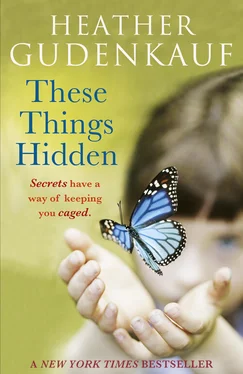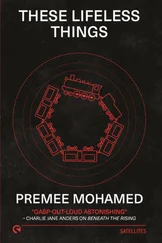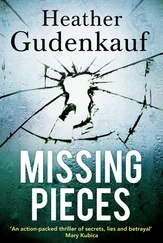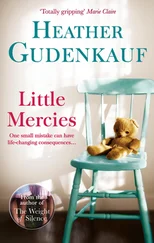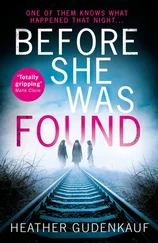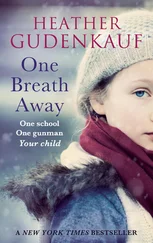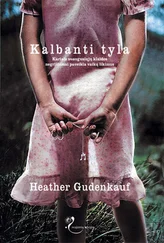“Come on, I’ll show you.” She smiled at me and I reluctantly followed her into the building. We were greeted by a friendly black lab and a girl my age wearing a red vest, with a name tag that said Missy. She was standing behind a tall counter holding a small orange kitten. I heard the muffled yips and whines of dogs being kenneled in another part of the building.
“Hello, ladies,” the girl said brightly. “What can I help you with today?”
My grandmother looked at me “What can she help you with today, Brynn?”
“Really?” I asked in disbelief. “Grandma, are you serious?”
“Go on and take a look.” She nodded her head toward the kennels. “There is some little critter in there, waiting for you Go find him.”
“Come on,” Missy said. “I’ll show you the way.” Missy opened a door and we were met with yelps and barking that echoed against the walls. The long, narrow room was lined with kennels filled with all kinds of dogs—a beagle, an English setter, labs and lots of mixed breeds. I stopped in front of a puff of reddish-brown fur that looked at me with bright, pleading eyes.
“What kind of dog is this?” I asked Missy.
“That’s Milo. He’s a mix of German shepherd and chow chow. Two months old. He was found out on a gravel road south of town. Poor thing was starving and dehydrated. He’s a busy little guy, but a sweetie.”
I looked at my grandma. “Can I have him?” I asked her, not daring to get my hopes up. He was only a few months old and already had huge paws, and Missy had said he was busy. “I think he needs me.”
“Of course, Brynn. He’s yours,” she said, sliding her arm around my waist.
It was through Missy that I became a volunteer at the animal shelter and learned about the Companion Animal program at the community college. I’m still not sure why pretty, fun-loving and free-spirited Missy befriended safe, boring me, but I’m glad she did. I remember when I was thirteen, my mother made me go to the same sleep-away soccer camp that Allison attended. I was terrible at soccer and screwed up every single time the ball came my way. Allison didn’t acknowledge me once that week. Whenever I tried to talk to her, whenever I tried to join in with her group of friends, she completely ignored me. When I finally couldn’t take it anymore and started blubbering like a baby, Allison rolled her eyes and laughed. I ended up spending the rest of camp in my cabin insisting that I sprained my ankle.
Having a friend, especially one who loves animals as much as I do, is such a relief. I drop my phone back into my purse and my hand grazes the bottle that holds the medicine I’ve been taking for the past year. I haven’t taken my dose for the day. Didn’t take it yesterday, either. I’ve been feeling better. Stronger. Even the news that Allison is out of jail doesn’t bother me as much as it would have a year ago.
Maybe it’s time to stop taking the pills. Maybe I’m ready to try things on my own for a while.
I look down at the baby doll, its lifeless eyes looking up at me, and I feel weak. It’s been five years and one month and twenty-six days. She would have been five years or sixty-one months or 269 weeks or 1,883 days or 45,192 hours or 2,711,520 minutes or 162,691,200 seconds old. I’ve been keeping count.
Many of the women at Cravenville had children. Some even gave birth to their babies behind bars. I used to run circle after circle around the prison courtyard, my tennis shoes pounding against the cement, the air heavy in my lungs. “Where you running to, Baby Killer? You running from yourself?” I would hear this from a corner of the yard and then a cackle of laughter. I ignored them. When they weren’t calling me baby killer or bitch or worse, they didn’t talk to me at all. They looked through me as if I was just a part of the putrid air on our cell block. Those were women who themselves were killers; they murdered their husbands or stabbed their boyfriends or shot a clerk in a robbery. But I’m worse. A helpless baby, a few minutes old, was tossed into the river to be swept away with the current, to be battered against the bank.
The women at Gertrude House are no different than the women at Cravenville. I have never felt more alone than I do right now. I know how hard it has been for my parents to witness how far I’ve fallen. But all I want is for them to come and see me. It’s been so long since I’ve held my mother’s hand, felt my father’s touch. Heard my sister’s giggle. We were never a touchy-feely family, but sometimes, when I hold very still, I can recall the weight of my father’s large, capable hand resting on my head. Sometimes, when I close my eyes, I can imagine that things are like they were before everything went wrong. I can imagine that I am back in high school, running on the track and trying to beat my best time, sitting in my room doing my calculus homework, helping my mom with dinner, talking with my sister.
I had a plan. I would ace my college entrance exams, play volleyball for the University of Iowa or Penn State, major in prelaw, go to law school. I had my future all mapped out. Now it’s gone. It’s over. All because of a boy and a pregnancy.
I was in the hospital, hooked up to an IV, when I first met Devin. She told me I was going to be charged with first-degree murder and child endangerment. “Did you think the baby was dead before she went into the river?” she asked me at that first meeting. I shrugged my shoulders and didn’t answer.
“Did you think she was dead?” she asked again, pacing back and forth in front of me. She was relentless. All I wanted to do was curl up in a ball and die and she kept trying to reexamine everything that had happened.
“Sure,” I finally said. “Sure, I thought it was dead.”
She spun on her heel. “Never call her an it. Do you understand?” she said severely. “You call her the baby or she or her, but never it. Got it?”
I nodded. “I really thought the baby was dead already,” I said, wanting to believe it, but knowing nothing I said was the truth. The medical examiner had already proved I was wrong.
Eventually, Devin had me plead guilty to involuntary manslaughter, a class “D” felony that carried a five-year sentence, and child endangerment, a class “B” felony that meant I could be confined for more than fifty years, although Devin assured me that there was no way I would serve that kind of time. I didn’t have to take the stand in my own defense. It never got that far. I’ve never told anyone what happened that night, and no one seems very interested in hearing the exact details. I think I remind everyone of someone they could know. A sister, a daughter, a grandchild. Maybe even themselves. Everyone knows the basics of what I did. That’s enough for them. Devin was right. I ended up being sentenced to ten years at Cravenville. As horrible as that sounded at the time, it was much better than the fifty-five years I could have faced. I asked Devin why it was such a short sentence.
“There are many factors,” Devin explained. “Prison overcrowding, the circumstances of the crime. Ten years is a bargain, Allison.”
Then, a month ago, Devin came to see me at the prison. I was running around the courtyard, the July heat radiating off the concrete. I could feel the warmth seeping into my tennis shoes and through my socks. Breathing heavily, I watched as Devin walked quickly over to me, dressed in the gray suit she wore like a uniform and high heels. I’ve never worn a pair of high heels, never went to a school dance, never went to the prom. “Allison, good news,” she told me by way of greeting. “The parole board is going to review your case. You’ll go before the board next week for an interview.”
Читать дальше
